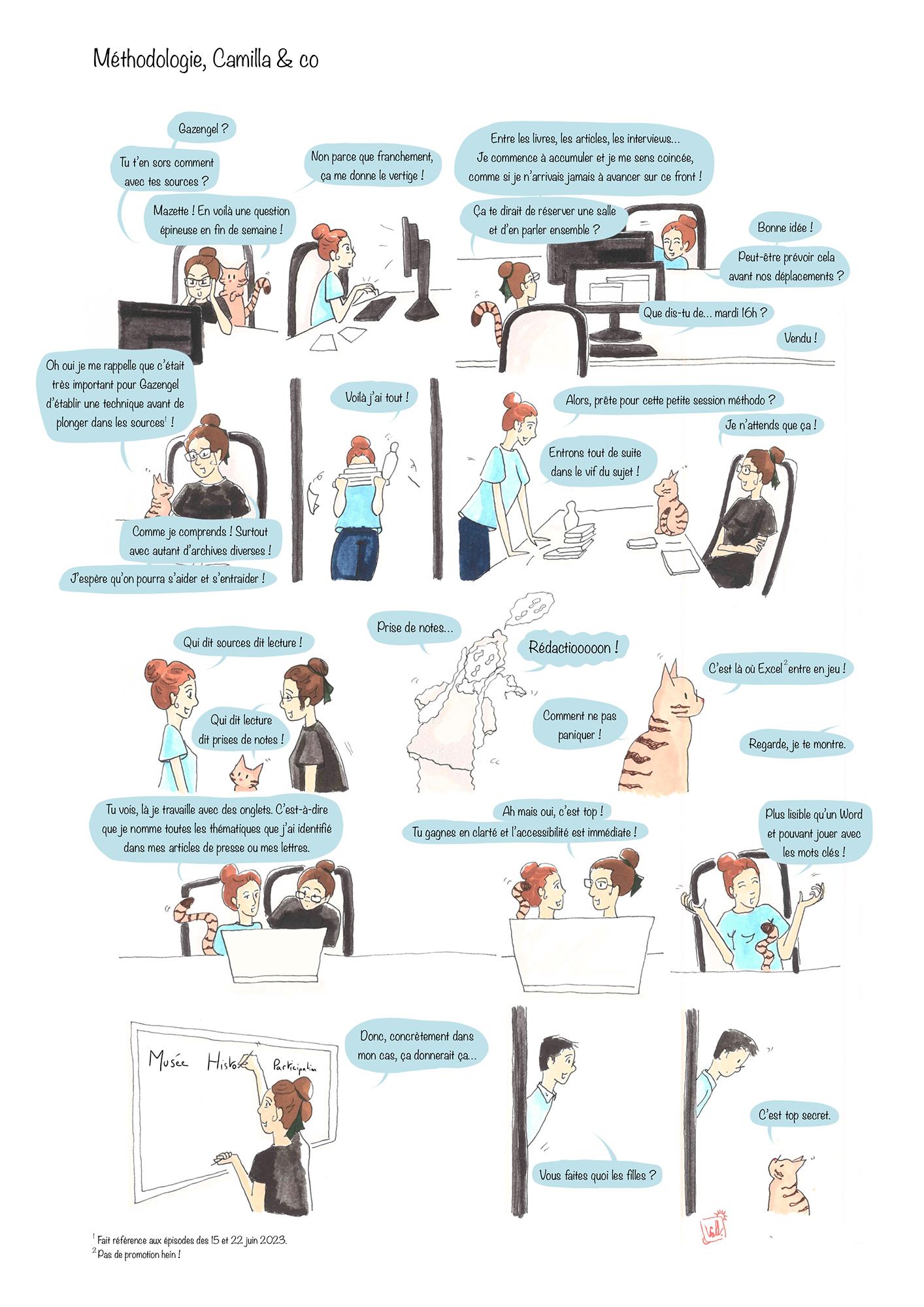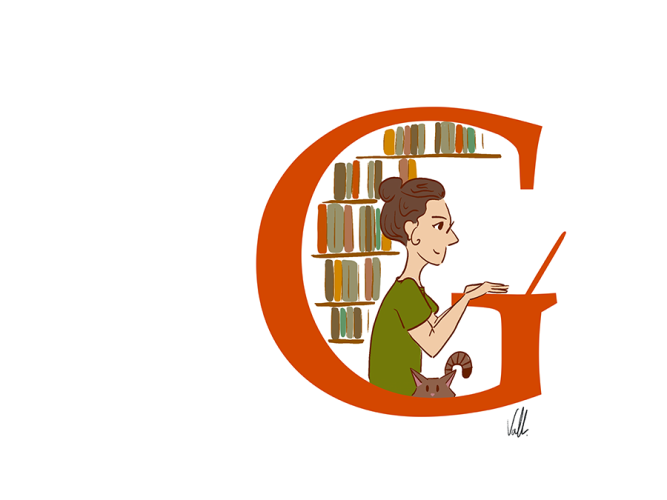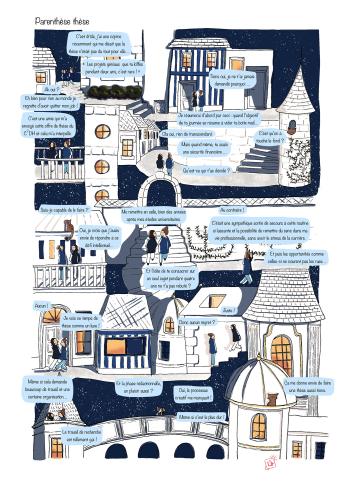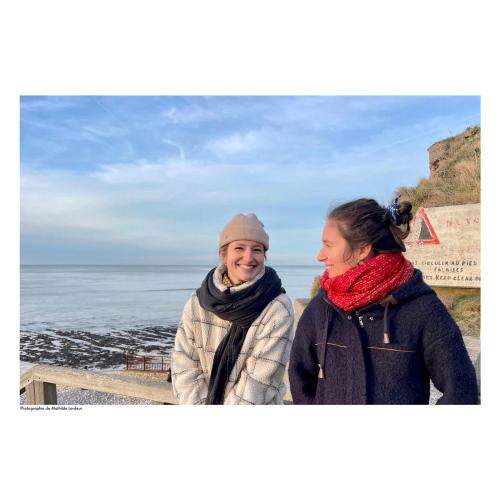
When Gandanger started her cotutelle PhD programme (divided between the University of Luxembourg and the University of Caen in France) in 2021, she was keen to develop a side project that would serve as a reminder of her experience during those four years of research and studies.
Already armed with a master’s degree in public history from Université Paris-Est Créteil, Gandanger had become fascinated by the concept of explaining to the layperson exactly what doing a PhD involves. She had a real desire to share this unique experience.
“I spoke with a cartoonist and explained the idea,” she says. (The cartoonist happens to be her sister, Valentine.) “I was thinking it would be a little project, with maybe just one of her drawings and some text, but Valentine was convinced that people would be interested, and that we should do more than just a one-off.”
The result is a series of cartoons about the titular protagonist, Gazengel. “I didn’t want to use my own name,” explains Gandanger. Gazengel was the original family name several centuries ago, she adds, but it was later transformed to Gandanger.
Gazengel is accompanied by a cat named Benziglout, for which Bill Watterson’s Calvin and Hobbes served as inspiration. The addition of the cat allowed Gandanger to introduce her own sense of humour into the comic strip. Friends, family members, fellow researchers and artists also make regular appearances.
The first episodes were published twice a month on Instagram. Written in French, they were based on anecdotes and thoughts on life and work as a PhD researcher. They tackled themes such as how to access archives and what it can be like to uncover rare and useful material.
The initial test, Gandanger explains, was to build an Instagram community from scratch. “It was a challenge to convince people that, yes, this is cool, because I was talking about history, about the war godmothers, which is my subject.” Indeed, one particular war godmother, Yvonne Fleury, whose life story featured significantly in Gandanger’s master’s research, takes centre stage in six Gazengel episodes. She reads from her diary and letters from her six “godsons” – soldiers in World War I who may not have had family with whom they could correspond – and even receives visits from them while they are on leave.
The creative process, says Gandanger, was quite spontaneous. “I was just thinking about what could be interesting to share with an audience that they didn’t know about how doing a PhD works. This was a way to express myself using the concept of public history combined with fiction and the expertise of the cartoonist.” The siblings fine-tuned the cartoons as they progressed. Gandanger admits that the first episodes were perhaps too text-heavy, so finding the right balance between the drawings and the written word was a process in itself.

For the third season, which is now being developed in collaboration with the C2DH via a Thinkering Grant, Gandanger has been having conversations with collaborators from the interdisciplinary research centre before launching into the creative process for each episode. “But I remain the main author who comes up with the concept,” she explains. The new season looks back at milestones in Gandanger/Gazengel’s life before her PhD. The backing of the C2DH allowed the comic strip to move away from the restrictions of the Instagram format. Monthly episodes, now in French, English and German, are published on the University of Luxembourg website.
The latest episodes are packed with more lively stories. “We really opened our creativity to the maximum,” Gandanger says. “For instance, one episode is about the adventure of writing. So I asked my sister not to keep Gazengel in the office but to have her explore nature, go swimming and see the mountains because we can compare the challenge of climbing a mountain with our work.”
This new freedom has allowed Gazengel to achieve what Gandanger set out to do. The comic strip is about creating good vibes and having fun with history and research while also sharing an important message about the PhD experience. “Yes, it’s fiction, for sure. But the dialogues are authentic.”

More about Gazengel
Project leader:
Aliénor Gandanger.
Funding:
University of Luxembourg, C2DH Thinkering Award 2023.
Partners:
Valentine Gandanger.
Media coverage:
Jeff Karier. “Wie eine Forscherin ihren Alltag als Comic schmackhaft macht.” Télécran & Luxemburger Wort, 12 April 2024.
